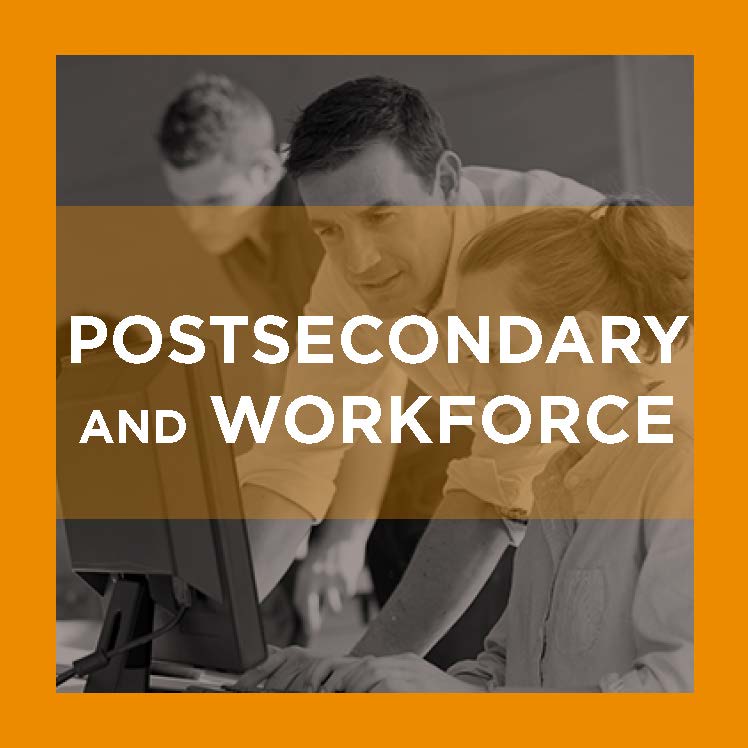May is National Foster Care Month. For the more than 427,000 youth in care, the bridge between education policy and practice is particularly relevant. Foster youth face a multitude of personal, social and environmental challenges that can negatively impact their postsecondary success. Education policymakers have the power to change across the entire P-20 pathway for this important, yet often marginalized population. In acknowledgment of this month, Education Commission of the States shares recently enacted 2017 policies that demonstrate states’ continued effort to support educational success for foster youth.
![]() WA SB 5241: Relating to the educational success of youth in foster care.
WA SB 5241: Relating to the educational success of youth in foster care.
Washington takes a directed approach in requiring school districts to proactively support the transfer success of foster youth from high school to postsecondary enrollment. Districts are mandated to (1) consolidate partial credit, unresolved or incomplete coursework and (2) provide opportunities for credit accrual in a manner that eliminates academic and nonacademic barriers for students. This particularly benefits the many foster youth who have disjointed academic transcripts as a result of high mobility. On average, foster youth will attend at least three different schools during their time in foster care. SB 5241 will ensure that students who have been unable to complete coursework will earn at least partial credit, and requires the receiving school to apply those credits to their academic progress toward graduation.
 OR SB 551: Relating to support programs for students receiving foster youth tuition waivers.
OR SB 551: Relating to support programs for students receiving foster youth tuition waivers.
Oregon enacted SB 551, which expands the current foster youth tuition waiver by directing the Higher Education Coordinating Commission (HECC) to develop and implement a pilot program to assist foster youth transitioning from community college to a public university. Just 46 percent of foster youth will earn a high school or GED diploma, and less than 3 percent will obtain a post-secondary degree. SB 551 proposes additional funding for the creation of the Foster Youth Promise Support Program Fund and authorized issuance of lottery funds to HECC to provide ongoing supports for foster youth, including: (1) enhanced tuition waivers, (2) college orientation events, (3) mentorship programs and (4) increased academic opportunities. Review of current foster youth outreach programs will help align existing supports and coalesce fundraising opportunities to support additional incentives that significantly impact foster youth degree attainment.
 TX SB 482: Relating to the creation of a program to assist foster care youth and former foster care youth in accessing higher education, career information and skills certifications.
TX SB 482: Relating to the creation of a program to assist foster care youth and former foster care youth in accessing higher education, career information and skills certifications.
Texas has taken intentional action to support access to higher education and workforce development opportunities for foster youth. Thirty-five percent of former foster youth have a household income below the poverty line, and with an unemployment rate of 48 percent, they are four times more likely to struggle with prolonged financial insecurity compared to the general population. SB 482 outlines that the Texas Department of Education is required to collaborate with local workforce industries, foster care agencies and education institutions to support degree attainment and job placement. Effective September 1, 2017, the network will be commissioned to create a program that directly (1) assists foster youth and former foster youth in obtaining a high school degree, (2) promote credentials related to high demand workforce and industry occupations, (3) provides ongoing and targeted career guidance and (4) increases foster youth and foster care alumni understanding of available financial supports and state-based tuition waivers.
There continues to be increased awareness of the plight of foster youth and the ways in which they are unintentionally disserved by education policy and practice. These newly enacted policies only serve as a snapshot of the commitment at the state level to bridge the gaps for this population. So, while National Foster Care Month draws to an end, clearly the work and commitment continues.
Related Reports:
Strengthening Policies for Foster Youth Postsecondary Attainment
State-Level Tuition Assistance Programs for Foster Youth in Postsecondary Education
Tuition Assistance Programs for Foster Youth Pursuing Postsecondary Education
A Tale of Two Students: How State Policy Affects College Access for Foster Youth








